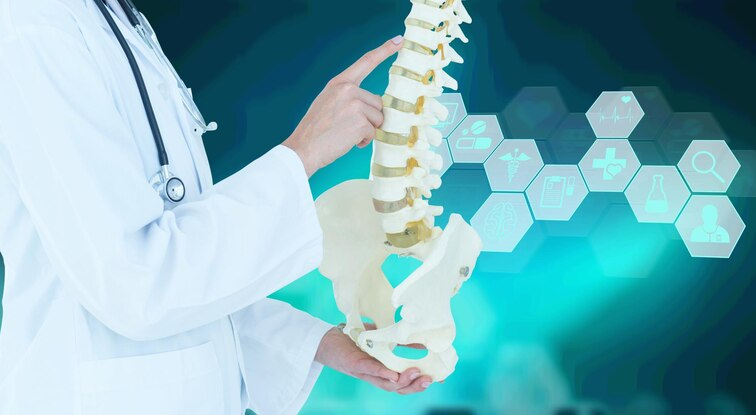Introduction
Our bones are not just lifeless structures; they are dynamic, living tissues that constantly remodel and adapt to various physiological changes. Hormones play a pivotal role in regulating this complex process. Understanding the intricate connection between hormones and bone health is crucial for maintaining strong and healthy bones throughout life. In this article, we will explore the profound impact of hormones on bone health and the importance of maintaining hormonal balance.
The Role of Hormones in Bone Health
Hormones are chemical messengers that circulate in the bloodstream, influencing various physiological processes, including the regulation of bone density and strength. Several key hormones have a direct impact on bone health:
- Estrogen
- Role: Estrogen, predominantly in women, is vital for maintaining bone density.
- Effect: During menopause, when estrogen levels decline, bone loss accelerates, leading to a higher risk of osteoporosis.
- Testosterone
- Role: Testosterone, mainly in men, contributes to bone growth and maintenance.
- Effect: Low testosterone levels can lead to reduced bone density and a greater risk of fractures.
- Parathyroid Hormone (PTH)
- Role: PTH helps regulate calcium and phosphorus levels in the blood.
- Effect: Excessive PTH, as seen in hyperparathyroidism, can lead to bone resorption and calcium loss.
- Thyroid Hormones
- Role: Thyroid hormones, such as T3 and T4, play a role in metabolism and bone growth.
- Effect: Both hypothyroidism (underactive thyroid) and hyperthyroidism (overactive thyroid) can negatively affect bone health.
- Calcitonin
- Role: Calcitonin helps regulate calcium and phosphorus levels.
- Effect: It inhibits bone resorption, helping to maintain bone density.
Hormones and Bone Health Throughout Life
Childhood and Adolescence
Growth hormone, produced by the pituitary gland, is essential for bone growth during childhood and adolescence.
Adulthood
In early adulthood, peak bone mass is achieved, influenced by various factors, including diet, physical activity, and hormonal balance.
Menopause and Andropause
In women, the decline in estrogen during menopause leads to rapid bone loss. In men, the gradual decrease in testosterone during andropause also contributes to bone density reduction.
Aging
With advancing age, the balance between bone formation and resorption becomes skewed, leading to a gradual loss of bone density.
The Impact of Hormonal Imbalance on Bone Health
Hormonal imbalances can lead to several bone-related conditions:
- Osteoporosis: A condition characterized by fragile and brittle bones due to low bone density.
- Osteopenia: A precursor to osteoporosis, characterized by lower bone density than normal.
- Hyperparathyroidism: Excessive PTH production can lead to bone resorption and calcium loss.
- Hyperthyroidism: Overactive thyroid can lead to bone loss due to increased metabolism.
- Hypothyroidism: Underactive thyroid can reduce bone density due to decreased metabolism.
Maintaining Healthy Bones
To support and maintain healthy bones throughout life, consider the following:
- Balanced Diet: Consume a diet rich in calcium, vitamin D, and other nutrients essential for bone health.
- Physical Activity: Engage in weight-bearing exercises to stimulate bone growth and maintenance.
- Hormone Replacement Therapy: In some cases, hormone replacement therapy may be recommended to address hormonal imbalances.
- Regular Check-ups: Consult with healthcare professionals for regular bone density assessments and guidance on maintaining bone health.
Conclusion
Hormones play a vital role in bone health throughout our lives, influencing growth, maintenance, and bone density. Understanding the connection between hormones and bones and taking proactive steps to maintain hormonal balance, a balanced diet, and regular physical activity can help ensure that our bones remain strong and resilient as we age. Prioritizing bone health is a crucial aspect of overall well-being and quality of life.
.pdf%20300X60%20PX-02-02.svg)



